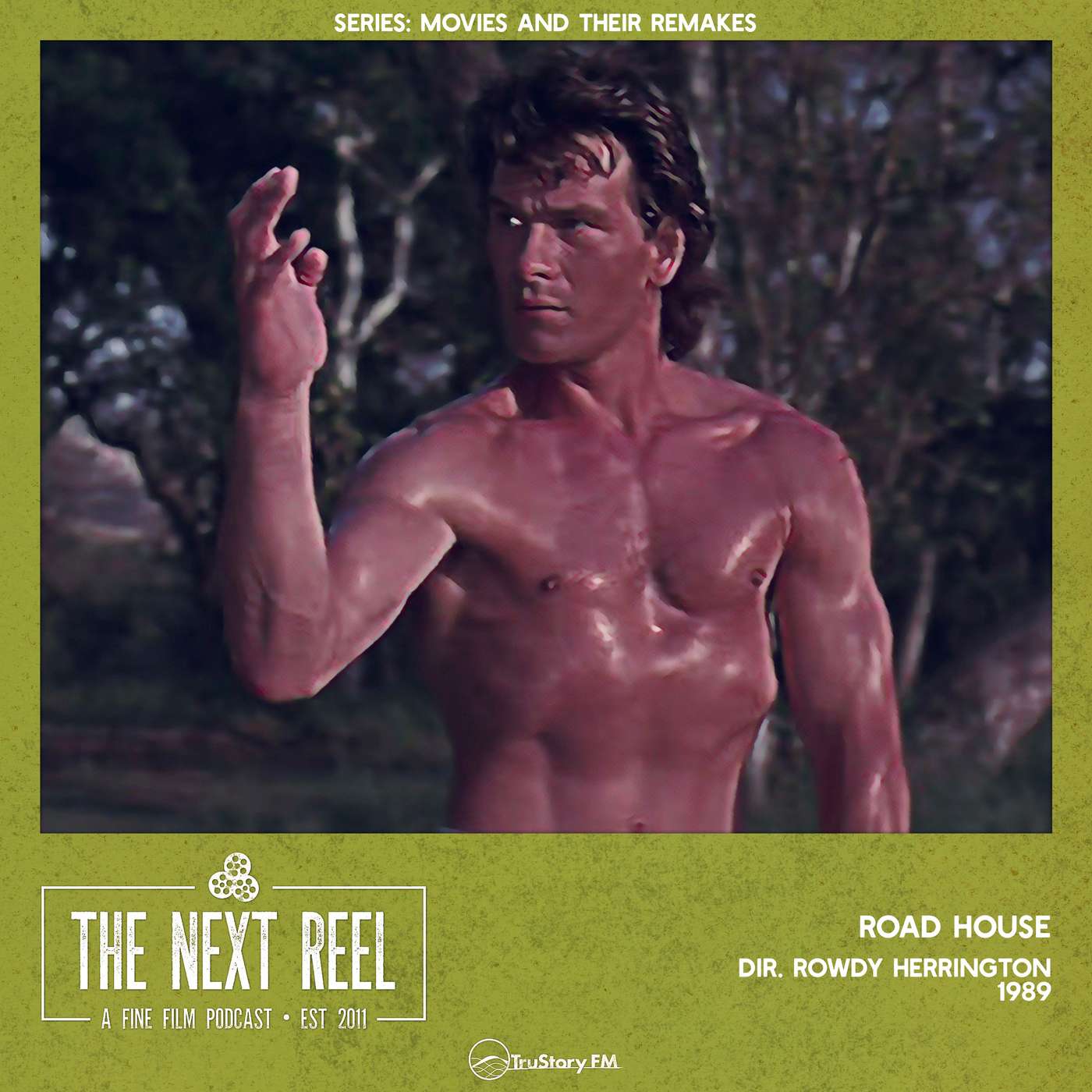Road House (1989)
- Author
- TruStory FM
- Published
- Thu 08 May 2025
- Episode Link
- https://share.transistor.fm/s/09d29732
“I want you to be nice, until it’s time to NOT be nice.”
From Bar Fights to Box Office: The Making of a Cult Classic
In the late 1980s, United Artists sought to capitalize on Patrick Swayze's rising star power following the success of Dirty Dancing. The studio paired him with director Rowdy Herrington for what was pitched as "the best drive-in movie ever made." The film's original casting included Annette Bening as Dr. Clay, but she was replaced by Kelly Lynch due to reported chemistry issues with Swayze. Despite initial skepticism from critics, the $15 million production would go on to become a cultural phenomenon. Join us – Pete Wright and Andy Nelson – as we return to our Movies and Their Remakes series with a conversation about Herrington’s 1989 film Road House.
Bouncing Through the Film's Deeper Themes
The film cleverly reinterprets classic Western tropes through the lens of late 1980s sensibilities. We discuss how Dalton embodies the archetype of the wandering hero, much like characters from films such as Shane and Seven Samurai. Furthermore, the movie explores themes of authoritarian capitalism through Ben Gazzara's villainous Brad Wesley, while simultaneously delivering crowd-pleasing action sequences and memorable character moments.
Elements That Make Road House Stand Out
- Jeff Healey's authentic musical performances that evolve alongside the bar's transformation
- The distinction between bouncers and "coolers" in bar culture
- Sam Elliott's compelling performance as Wade Garrett, despite the ‘controversial’ lack of his signature mustache
- The film's ability to appeal to multiple audiences through strategic character development
- Dean Cundey's cinematography capturing both brutal fight scenes and sensual moments
A Lasting Impact on Popular Culture
Road House has demonstrated remarkable staying power, spawning a theatrical musical adaptation, a direct-to-DVD sequel, and most recently, a high-profile remake. While initially receiving Razzie nominations, the film has been embraced by audiences and reappraised by critics over the years. Both hosts found themselves thoroughly entertained by this blend of philosophy, fisticuffs, and Patrick Swayze's undeniable charisma. We have a great time talking about it, so check it out then tune in. The Next Reel – when the movie ends, our conversation begins!
Film Sundries
- Watch our conversation on YouTube!
- Watch this on Apple or Amazon, or find other places at Letterboxd
- Script Options
- Theatrical trailer
Support The Next Reel Family of Film Podcasts:
- Become a member for just $5/month or $55/year
- Join our Discord community of movie lovers
The Next Reel Family of Film Podcasts:
- Cinema Scope: Bridging Genres, Subgenres, and Movements
- The Film Board
- Movies We Like
- The Next Reel Film Podcast
- Sitting in the Dark
Connect With Us:
- Main Site: Web
- Movie Platforms: Letterboxd | Flickchart
- Social Media: Facebook | Instagram | Threads | Bluesky | YouTube | Pinterest
- Your Hosts: Andy | Pete
Shop & Stream:
- Merch Store: Apparel, stickers, mugs & more
- Watch Page: Buy/rent films we've discussed
- Originals: Source material from our episodes
- Special offers: Letterboxd Pro/Patron discount | Audible
